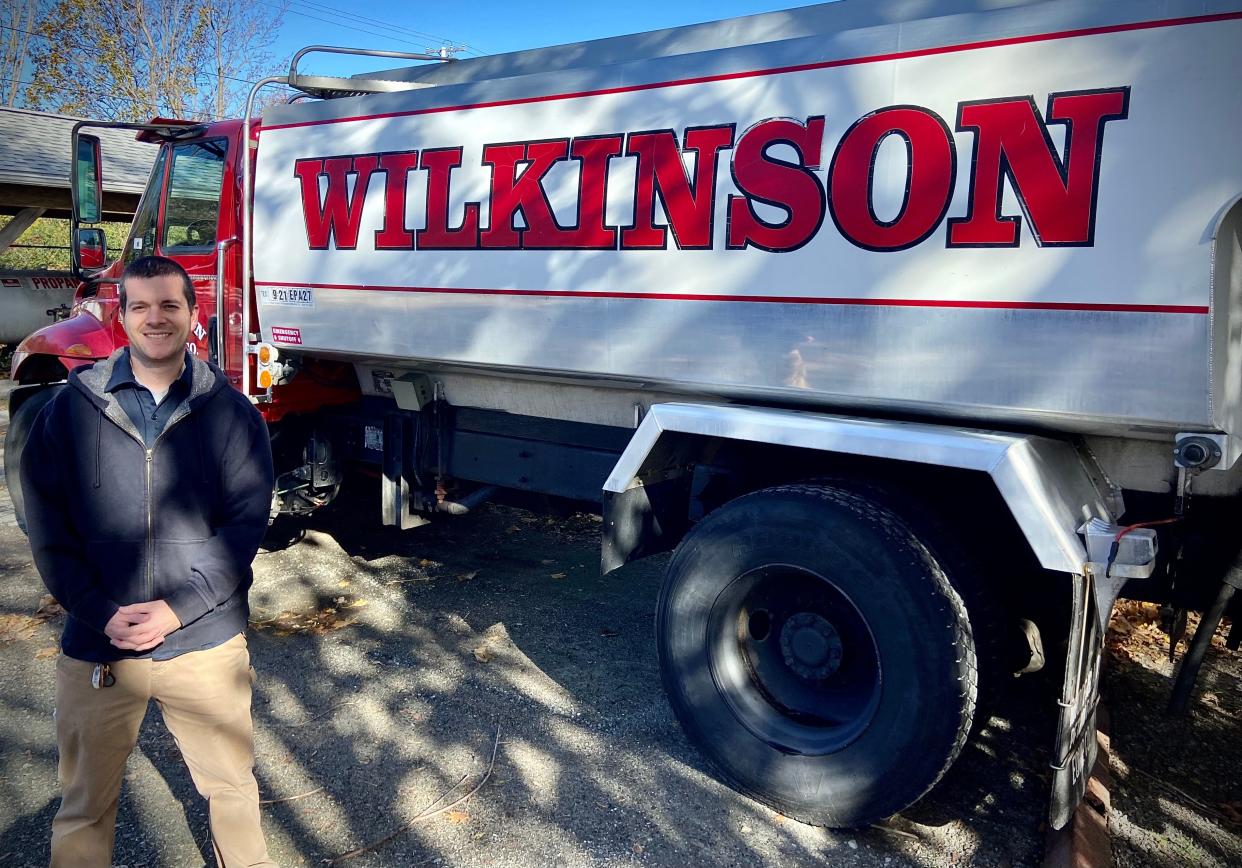Home heating bills could skyrocket this winter — how these local programs can help
FALL RIVER — Marie says a federal fuel assistance program administered locally by the nonprofit Citizens for Citizens has been invaluable to her since she first applied and qualified five years ago.
“Without that program I don’t know where I would be,” she said. “I would probably end up in a shelter.”
Marie, who asked that her full name not be used, lives in Fall River and is one of more than 13,000 households in a dozen regional cities and towns — from Seekonk to Lakeville — that Citizens for Citizens has helped utilize the federal Low Income Home Energy Assistance Program, or LIHEAP for short.
The LIHEAP program — which assists low-income homeowners and renters pay their heating bills during the coldest months of the year — is part of the U.S. Health and Human Services.
No fuelin': Energy prices to jump this winter as demand catches up to supply
How LIHEAP works
LIHEAP was established in 1981 and is funded each year by the federal government. Individual states oftentimes augment the federal allotment when they deem it to be necessary.
“It’s a life and death program,” said Citizens for Citizens executive director Elizabeth Berube, who began as a volunteer with the Fall River agency 45 years ago when she was a teenager.

Berube works with utility companies including Liberty Utilities, National Grid and Eversource Energy in administering the LIHEAP heating bill program, which in Massachusetts runs from Nov. 1 to April 30.
Eversource response to storm: Eversource to survey towns for potential power outage hazards following nor'easter damage
An applicant — whether it’s someone who owns a house or, like Marie, is a Section 8 housing voucher recipient — is eligible if their income does not exceed 60 percent of the estimated state median income.
In the example of a household of four, the combined gross income threshold is currently $78,751. For a single-person household one can have an income up to $40,951 and still be eligible.
Berube says more people should be taking advantage of the government’s largesse.
“It’s shocking how liberal the guidelines are,” she said, adding that “most people don’t think of themselves as low income.”
Berube says LIHEAP covers heating sources including but not limited to oil, natural gas, propane, electricity, kerosene, wood and wood pellets.
She says she works with more than 40 vendors to deliver various fuels — with natural gas accounting for 50 to 60 percent of deliveries, oil heating fuel around 30 percent and electricity just over 10 percent.
Berube said she’s concerned about rising home heating prices and the possibility of a frigid winter that will create even more demand.
Heating fuel stats
The U.S. Energy Information Administration last month predicted that U.S. households, on average, this winter will spend 30 percent more for natural gas; 43 percent more for heating oil; 6 percent more for electric heat; and 54 percent more for propane.
Why your heating bill could skyrocket: What to know about hikes in natural gas prices
It said its prediction was based on rising retail energy prices following “changes to energy supply and demand patterns in response to the COVID-19 pandemic” as well as an expectation of a slightly colder winter in the U.S. compared to a year ago.
The price of heating oil, which is determined by the price of crude oil, has been marching upwards since early October when, according to the U.S. Energy Information Administration, the price per gallon was $3.10.
As of Nov. 8 the price had risen to $3.35 per gallon, the EIE said. The online business data platform Statista has predicted the price per gallon of heating oil will reach $3.39 this winter.
Local heating fuel provider
Anthony Santoro, whose family business Santoro Oil of Providence in 2020 purchased Wilkinson Fuels and Propane in Somerset, said it’s impossible at given time to predict how futures contracts will be traded on the New York Mercantile Exchange.
“It’s a crap shoot,” he said.

Santoro, who acts as regional manager for Santoro’s Wilkinson division, which services 2,000 accounts in southeastern Massachusetts and the East Bay region of Rhode Island, said his company now has an ample supply of home heating oil.
But he warns that “temperature dictates” how much supply will be available during the winter. Santoro also said that propane supply levels are at a five-year low, due in part to increased export sales to Asia.
Santoro says propane sales account for one third of sales within the Wilkinson region’s 10-mile radius.
A grateful recipient
Marie said Citizens for Citizens saw to it last year that she received just over $500 from the LIHEAP program to cover her natural gas heat bill.
She says she’s lived alone in her second-floor apartment for 36 years and has collected social security disability benefit payments since 2010.
“I’ve been a worker and volunteer since I was 14,” she said. “It took my doctor 13 years to get me to apply for disability.”
Marie said she’s endured at least 35 orthopedic-related surgeries since she was an active athlete in high school and is in constant pain from recent cervical spine surgery.
She encourages other people who qualify for LIHEAP, especially families with children, to contact Citizens for Citizens, which she says also provided her with a new refrigerator as part of its appliance management program.
Good Neighbor Energy Fund fills a gap
David L. Hughes of public relations firm Dodge Associates also sits on the committee that manages the fund for Canton-based Massachusetts Good Neighbor Energy Fund.
The fund, which is administered by the Salvation Army, picks up where Citizens for Citizens and LIHEAP leave off, by providing fuel assistance to households whose gross income falls between 60 and 80 percent of state median income levels.
“A lot of people are surprised when they realize ‘Oh, I do fit that criteria,'" Hughes said.
He said 19 energy companies sponsor the fund. Hughes also said that green donation envelopes mailed out with fuel bills continue to generate private donations.
“And we get donations and letters from people who themselves had previously received fuel assistance,” Hughes said.
Charles Winokoor may be reached at cwinokoor@heraldnews.com. Support local journalism and subscribe to The Herald News today.
This article originally appeared on The Herald News: Fuel assistance providers urge more people to apply as prices rise
